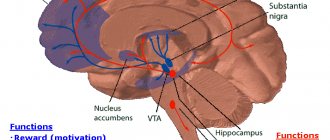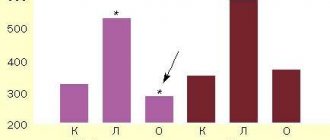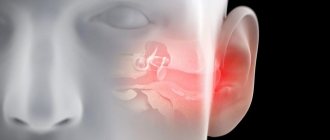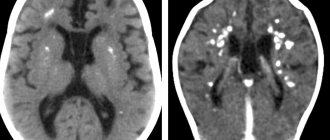Doctors prescribe antidepressants to help a person cope with depression, improve their mood, and reduce anxiety. If people taking antidepressants stop taking them, they may experience antidepressant withdrawal syndrome.
Antidepressants improve symptoms of depression, and when a person begins to feel better, they can stop taking the medications. However, suddenly stopping or reducing antidepressant use may cause a person to feel like they have the flu or other viral infection. For some people, symptoms may be severe and may include anxious thoughts and psychosis. These symptoms may be caused by stopping antidepressants.
What causes this?
Experts do not fully understand the causes of antidepressant withdrawal syndrome, but there are several theories. One theory is that sudden withdrawal from selective serotonin reuptake inhibitor (SSRI) antidepressants may lead to a decrease in serotonin concentrations. When a person uses SSRIs for a long time, they may experience an increase in serotonin levels. Serotonin is a hormone responsible for stabilizing mood and creating feelings of happiness and well-being. The activity of serotonin receptors is reduced when using SSRIs. When a person stops taking an SSRI, the receptors may remain in this less active state for several days or weeks. Because it affects how the body uses serotonin, a person may experience antidepressant withdrawal syndrome.
Similar effects may also occur when other antidepressants are discontinued, including monoamine oxidase inhibitors and tricyclic antidepressants, potentially leading to antidepressant withdrawal syndrome.
In addition, tricyclic antidepressants affect a part of the nervous system called the cholinergic system. If a person stops taking them, they may experience balance problems and symptoms similar to those of Parkinson's disease.
Monoamine oxidase inhibitors interact with neurotransmitters in the brain and improve communication between them, which can cause agitation and psychosis in a person.
ANTIDEPRESSANTS (Part 2)
Preferanskaya Nina Germanovna Associate Professor, Department of Pharmacology, Educational Department, Institute of Pharmacy and Translational Medicine, Multidisciplinary Center for Clinical and Medical Research, International School “Medicine of the Future”, First Moscow State Medical University. THEM. Sechenov (Sechenov University), Ph.D.
The antidepressant effect of these drugs is manifested by highly selective inhibition of neuronal reuptake of serotonin and an increase in serotonergic processes in the central nervous system (CNS), without causing changes in the functional activity of other brain mediators and without having a significant effect on the uptake of norepinephrine and dopamine. With long-term use, sensitivity decreases and the functional activity of serotonin 5-HT1 receptors decreases. These drugs have little effect on cholinergic receptors and do not inhibit MAO. Used to treat severe depressive disorders. The most common side effects are: sleep disturbance, increased body temperature, fever and sweating, joint and muscle pain, and tremors. Allergic reactions are rare and are expressed by skin rash, hives, and difficulty breathing.
Paroxetine , tablet, coating. vol., 20 mg/30 mg - the drug is considered the most powerful selective inhibitor of serotonin reuptake in brain neurons of all known drugs with a similar mechanism of action. In comparison with tricyclic antidepressants, it significantly enhances serotonergic transmission, has weak affinity for muscarinic cholinergic receptors and a slight antihistamine effect. The antidepressant effect develops after 1–4 weeks, sleep normalizes after 1–2 weeks, anti-panic, anti-anxiety effect after 4 weeks.
The recommended dose in adults is 20 mg once daily. The frequency and intensity of adverse reactions depends on the duration of the course of treatment. Most often they occurred in elderly patients.
Important! Side effects include serotonin syndrome (manifested by psychomotor agitation, muscle rigidity, hyperthermia), myalgia, tremor, itching, urticaria.
Fluoxetine , caps. 10 mg/20 mg - a fluorinated amino ester derivative - according to the mechanism of action it is close to Paroxetine. The drug does not affect the reuptake of norepinephrine and dopamine, does not interact with histamine, M-cholinergic and adrenergic receptors. The mildly developing antidepressant and anorexigenic effect appears after 1–3 weeks of treatment and is maximum after 5–6 weeks of continuous use. Equally effective in the treatment of various depressive conditions.
Important! When used, side effects occur: sexual dysfunction in men, including impaired ejaculation, decreased libido and impotence; allergic reactions, tremors, sweating, drowsiness, impaired attention, etc.
Sertraline , tablet, coating. vol., 50 mg/100 mg - a new generation antidepressant with the most pronounced antidepressant effect, exhibits a sedative effect, does not affect peripheral innervation. This drug is the “gold standard” in the treatment of anxiety and depression. The drug does not have an anticholinergic effect and does not affect adrenergic, histamine, dopamine and serotonin receptors. The antidepressant and anti-panic effect develops after 2–4 weeks. Relieves obsessive states, has an anorexigenic effect.
Important! When used, sexual dysfunction in men, decreased libido, anorgasmia and impotence may occur. Less commonly - engorgement of the mammary glands, galactorrhea, impaired attention, changes in gait, sweating.
Fluvoxamine / Fevarin , tablet, coated. vol., 50 mg/100 mg - a fluorinated derivative of valerophenone, selectively inhibits the reuptake of serotonin by neurons in the brain. The drug has virtually no sedative effect, minimally affects noradrenergic transmission, weakly binds to histamine, dopamine, serotonin and does not affect peripheral M-cholinergic receptors. Reduces anxiety and insomnia. The maximum concentration is reached after 3-8 hours, equilibrium - after 10-14 days.
Important! Frequently occurring side effects are nausea, vomiting (disappearing in the first 2 weeks of treatment), constipation, dry mouth, discomfort in the epigastric region, dizziness, headache, tachycardia, changes in body weight.
Citalopram , tablet, coating. vol., 10 mg/20 g/40 mg - a drug whose mechanism of action is associated with the selective blockade of neuronal reuptake of serotonin at the synapses of CNS neurons. It has a slight ability to bind adreno-, M-cholino-, histamine, dopamine and benzodiazepine receptors. Virtually no sedative effect. Helps improve mood, relieves anxiety, reduces obsessive states, fear, tension. Take 1 time per day at any time of the day, regardless of food intake, preferably at the same time. Duration of use is 6 months or more.
Important! Side effects - headache, drowsiness, nervousness, sleep disturbance, decreased libido, menstrual irregularities, tachycardia, shortness of breath, tinnitus, dry mouth, increased activity of liver enzymes, weight gain, allergic reactions.
Escitalopram , tablet, coating. vol., 5 mg/10 mg/20 mg - selectively inhibiting the reverse neuronal uptake of serotonin, prolongs the effect of serotonin on postsynaptic receptors. The drug practically does not bind and has no effect on other receptors. The antidepressant effect develops 2–4 weeks after the start of treatment, the maximum is achieved after a month. The course of treatment is at least 6 months to consolidate the obtained therapeutic effect.
The antidepressant, predominantly inhibiting norepinephrine reuptake, Maprotiline / Lyudiomil , is a compound with a four-cyclic structure. It has an antidepressant effect by inhibiting the reuptake of serotonin by ~30%, and inhibits the reuptake of norepinephrine by ~70%. The antidepressant effect is accompanied by anxiolytic and sedative effects. It is used for depression: involutional, psychogenic, neurotic, somatogenic, menopausal, etc. It causes a moderate anticholinergic, alpha-adrenergic blocking effect and antihistamine activity. When using it, the following may occur: orthostatic hypotension, tachycardia, arrhythmia, increased blood pressure, dizziness, headache, convulsions, ataxia, muscle weakness, impaired coordination of movements and handwriting, drowsiness or insomnia, nightmares, anxiety, increased appetite, impaired memory and concentration attention, tinnitus, change in taste, nasal congestion, dry mouth, constipation, increased sweating, accommodation disturbances, urination disturbances, nausea, vomiting, increased levels of transaminases in the blood plasma, diarrhea.
Melatonin receptor agonist Agomelatine / Valdoxan , tablet, cover. vol., 25 mg - the drug stimulates melatonin MT1 and MT2 and serotonin 5-HT2C receptors. Enhances the release of dopamine and norepinephrine in the prefrontal cortex and does not affect the concentration of extracellular serotonin. Restores the synchronization of circadian rhythms, normalizes the structure and quality of sleep, the release of melatonin and reduces body temperature by stimulating melatonin receptors. Effective in the treatment of patients with severe forms of depressive disorder, chronic moderate stress, and a combination of anxiety and depressive disorders. Does not have a negative effect on attention or memory. In patients with depression, Agomelatine at a dose of 25 mg increases the duration of the slow-wave sleep phase without changing the number and duration of the REM sleep phases. Starting from the first week, it promotes faster sleep and improves its quality. Does not cause withdrawal syndrome or addiction syndrome.
Eating food (both regular and high-fat) does not affect the rate of absorption and the bioavailability of the drug; it is eliminated from the body quickly. The drug does not cause sexual dysfunction and does not affect the occurrence of arousal and orgasm.
Important! Side effects were most often minor or moderate and were observed in the first months of treatment. The most common symptoms were nausea and dizziness, which, as a rule, were transient and did not require cessation of treatment. More serious adverse reactions include liver damage; liver function tests should be monitored before use.
Antidepressant withdrawal syndrome - symptoms
Symptoms of antidepressant withdrawal syndrome overlap with symptoms of other conditions, so doctors will take a medical history and ask about symptoms to make a diagnosis. People may notice changes in both physical and mental health if they stop taking antidepressants because these drugs affect systems throughout the body.
The following symptoms may appear:
- Flu-like symptoms
: These include fatigue, headaches, muscle and joint pain, and sweating. - Insomnia
: The person has difficulty falling asleep and may have vivid dreams or nightmares. - Nausea
: A person may feel nauseated, vomit, or have gastrointestinal symptoms such as diarrhea and cramps. - Imbalance
: The person may feel dizzy. - Sensory disturbances
: Antidepressant withdrawal syndrome can affect any of the senses, causing symptoms such as tingling of the skin, a burning sensation, or an electric shock, especially in the head. - Overarousal
: This abnormal state of hypervigilance makes a person feel on edge. He may feel restless, irritable, aggressive, or manic.
Drugs that are associated with withdrawal symptoms include:
- desvenlafaxine (Pristiq)
- citalopram (Celexa)
- duloxetine (Cymbalta)
- venlafaxine (Effexor)
- escitalopram (Lexapro)
- paroxetine (Paxil)
- fluoxetine (Prozac)
- sertraline (Zoloft)
Make time for withdrawal symptoms
Especially if you're stopping treatment completely, take a week or two off of difficult tasks to deal with it. Even a couple of days off can help. Give yourself time to adjust.
Of course, not everyone can take time off at any time, but you can start clearing out your medications before the weekend, or at least clearing out your schedule. If you feel very sick from withdrawal, stay in bed as long as you can. Long sleep will help you recover.
Don't forget to go to the store before you start taking off your medications. If you're feeling dizzy and panicky, you may have a hard time leaving the house until it passes.
Treatment of fever, nausea and diarrhea
If you feel unwell, you can take regular medications to relieve the symptoms.
For example:
- Anti-motion sickness tablets for dizziness
- Paracetamol in case of fever and/or headache
- Dioralyte for vomiting
If you don't want to drink all those bags, drink plenty of fluids)
How long does antidepressant withdrawal syndrome last?
Symptoms of antidepressant withdrawal syndrome are usually mild and resolve within 1-2 weeks. In more severe cases involving widespread cognitive impairment or psychosis, the person may require immediate psychiatric intervention.
The duration of symptoms depends on the half-life of the antidepressant. Half-life is a measure of how long it takes for the amount of a drug's active substance in the body to be reduced by half.
Drugs such as Prozac are known to cause withdrawal symptoms. Those with a longer half-life typically experience withdrawal symptoms that are less intense but last longer.
Stopping monoamine oxidase inhibitors can be more problematic because people often have severe symptoms.
Sudden cessation of tricyclic antidepressant use may also lead to antidepressant withdrawal syndrome. Your doctor may recommend reducing your dosage over several weeks or months.
Paxil withdrawal regimen
In order to avoid the consequences of drug withdrawal, you need to know how to properly stop Paxil. To do this, they adhere to a special regimen that repeats the dosage regimen at the beginning of treatment, but in the reverse order. So, every 2 weeks the dosage of Paxil can be reduced by 10 mg until it is completely discontinued.
So, if a person takes 50 mg, then he should drink 40 mg for two weeks, then two more at 30 mg, two at 20 mg and the last two weeks at 10 mg. In total, Paxil withdrawal lasts about two months.
At the same time, it is important to ensure that the person does not forget that he needs to take the medicine. Even missing a pill once can lead to the development of this syndrome.
When it occurs, the dosage that preceded the development of side effects is prescribed.
How to survive antidepressant withdrawal syndrome?
A person who wants to stop taking antidepressants should talk to a psychiatrist or psychologist to avoid the syndrome. Experts may advise switching to another drug or reducing your medication intake.
The following recommendations may help avoid or minimize antidepressant withdrawal syndrome:
- Slow withdrawal
: Doctors usually recommend using antidepressants for 6 to 9 months before stopping their use. People who have had relapses of depression or are at higher risk of returning symptoms should use the drugs for 2 years. - Stopping at the right time
: A person should stop taking antidepressants only under the guidance of a doctor when their life circumstances are stable and they feel well. A person should not stop taking antidepressants during periods of significant stress. - Planning
: Tapering or stopping antidepressants should occur over several weeks. The doctor will take into account the specific antidepressant, its dosage, and how long the person has been taking it. - Psychotherapy
: Only 20% of people taking antidepressants receive psychotherapy, which can help people recover from depression and avoid recurrence. - Activity
: A person can maintain their well-being by eating a balanced diet, exercising regularly, practicing stress reduction techniques, and getting enough sleep. Exercise releases feel-good endorphins, which improve your mood and reduce anxiety and depression.
Gradually reducing the antidepressant dose over a long period may reduce or eliminate side effects.
When to see a doctor
People considering stopping antidepressants should consult with their doctor to create a personalized plan. Factors that will determine the most appropriate approach include:
- type of antidepressant
- length of time the person took the drug
- any other medications he is taking
If a person has symptoms after abruptly stopping antidepressants, they should consult a doctor. A doctor can help manage severe symptoms, such as psychosis, which may require psychiatric intervention.










